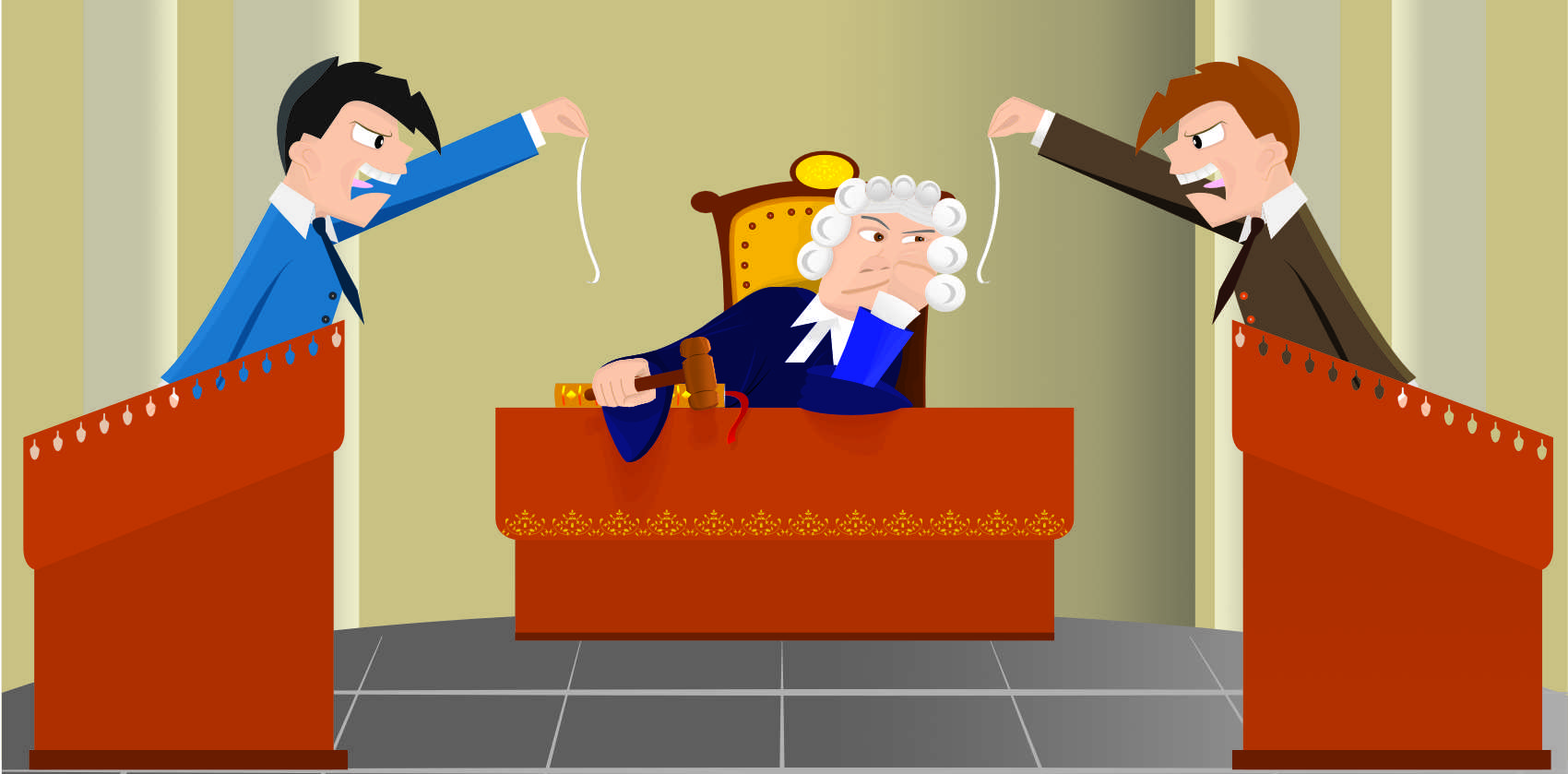
So What Do You Do As a Lawyer?
Have you ever been asked whether by your children or by random strangers what you do as a lawyer and found yourself stumped to come up with an all-encompassing answer that conveys the myriad things that lawyers do? We posed this question to our members and the answers have been interesting, from a short and sharp one liner to some philosophical musings. At the end of the day there are many ways to describe how you earn a living, but whichever way you choose to tell it is the way you see yourself, it is your identity, and it is also the reason why you get up each day to do what you do.
When my one-and-a-half-year-old son grows up, I’m sure he will ask me this question. “Dada, you’re a lawyer, mama’s a doctor. I know what doctors do because we visited the doctor before, but what about you?”
Maybe he will start watching legal dramas like Suits or Daredevil, as many of my junior team members did before they entered law school, and think that being a lawyer is all about looking cool in suits and speaking eloquently, or coming up with arguments in accordance with the law to bolster our case.
But as anyone who has been through law school or started practice would know, that isn’t exactly the case. So, how exactly will I answer my son?
To me, being a lawyer of course has some elements of the dramatised versions presented on Netflix. Yes, we wear suits to court. Yes, we make sometimes archaic sounding oral submissions, though they may not always be the most eloquent. Yes, we come up with arguments. But underlying all this is something very fundamental to all of us as human beings, lawyer or not. We communicate.
We listen to our clients as they share their concerns, we talk to them to find out their underlying interests, find legal solutions to our clients’ problems, and then we communicate these solutions to our clients. More often than not, our clients may not communicate to us what they are seeking from the law. Sometimes, overly Wikipedia-ed clients tell us they want to patent their brand or trade mark their design. Our role as lawyers is to bridge the gap between our clients’ interests and the law, to be the connection that they may not be able to find on their own. It is our calling to walk with our clients every step of the way, communicating with them, and helping them communicate. We are the mouthpiece for our clients, delivering their message to the courts, the opposing counsel, and even the counterparties in commercial transactions.
And at the end of it all, we communicate the outcome to our clients. While positive outcomes are often easy to share, negative outcomes may not be as so. We step in once again to find a way to help our clients accept the outcomes, whatever they may be.
So to answer my son’s question, I communicate.
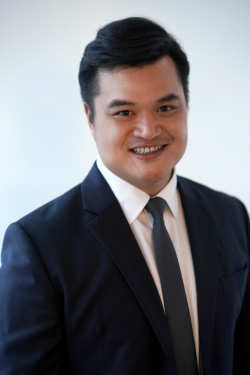 Mark Teng
Mark Teng
Executive Director
That.Legal LLC
“I Want to Save the World”
My first ever law internship was not with a firm, rather it was with the Legal Aid Bureau (LAB). I remember on my very first day, our internship mentor, Sandra, asked us why we wanted to do an internship with LAB. Without hesitation I said the first thing that came into my heart “I Want to Save the World!” and her reply was “Me Too!”. That must have left an impact on my fellow intern (who ended up being my Legal Aid Bureau colleague) because when I left Legal Aid and Service, they gifted me a poster with those exact same words.
Yet, I am far from saving the world. In fact, having been working in the area of family law for 13 years and counting; I have found that there are many times when the client’s world is crashing around them, and it seems hopeless to stop the carnage or mass destruction that is wreaking havoc on their lives and the lives of their loved ones. In these moments, sometimes, the only thing I can do is to cast my eyes heavenwards and pray for an outcome in the situation, one that will bring peace to all grieving and hurt parties involved.
I have come to realise that if Superman can’t even save the world on his own (without the rest of the Justice League for that matter) how much more impossible is it for a mere mortal like myself? However, like the stubbornness and resoluteness of “One Punch Man” what I can do, is to try – together with the rest of my colleagues to find all means and ways to bring even a tiny bit of positive impact to our clients’ lives. Sometimes, all it takes to set the avalanche of change going, is that tiny bit of positivity – maybe it was just an encouraging word, but you never know how far that would go.
We all can be a conduit for good, a catalyst to bring change to the lives of our clients who entrust their lives into our hands – our advice can either save lives or destroy them, such is the enormity of the responsibility. The practice of law is for the stoutest of hearts – in the chaos of this age, who will be there to bring peace and light to the darkness of conflict? I look around and I see many potential young superheroes in each one of us, will you heed the call?
 Yue-En Chong
Yue-En Chong
Managing Director
Bethel Chambers LLC
I argue for a living.
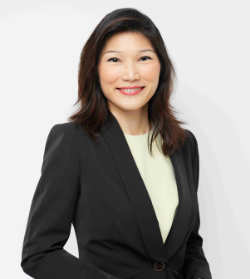 Charis Tan
Charis Tan
Partner
Peter & Kim
When I was about to start practice proper after nine years as a public servant and three years as a lecturer, my daughter (who had just turned five) asked me, “Dada, what are you going to do in your new job?” It gave me pause as I tried to think of a kid-friendly answer. When I used to do standup comedy, I used to tell a bevy of lawyer jokes, including how lawyers were the only people who met crying people and made them cry even harder after giving them a solution … and the bill. (if you didn’t find that funny, there’s a reason I’m in law!)
So I asked friends who had been in the industry for a while. I asked my students at SUSS why they wanted to become lawyers. I asked myself why I was going back, after spending years outside private practice after being called in 2010. The answers took various forms and modes, but all of them boiled down to one thing – helping people. Whether it was my friends in dispute resolution or corporate practice, my SUSS colleagues in areas of community law, my new firm which covers different types of practice, or my students studying to become family or criminal lawyers, the unifying theme was the chance to help people with their problems, and to find a solution to get them to where they needed to be.
Eventually, the answer I gave my daughter was that Dada helps people with their problems, and sometimes Dada is just there to lend people a listening ear as they try to walk through their own issues. As she smiled, seemingly content with the answer, and headed off to play, I decided I’d leave the notably tougher idea of billing for another time.
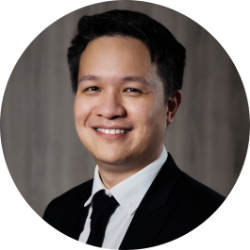 Tris Xavier
Tris Xavier
Associate Director
Head of Integrated Property Practice Group
Yuen Law LLC
As a Catholic and being part of a Catholic community where divorce is mostly frowned upon, I cannot resist, when asked about my job, describing myself as a “divorce lawyer”. It usually results in shocked faces and many people do not know how to react.
To adults who have a view that divorce is “wrong”, and make known those views to me, I clarify that I am a “Family Lawyer” and that I try to help couples who are no longer in love with each other end their marriage in hopefully a loving manner. I also clarify that while my work is mostly divorce, there are other aspects to Family Law such as adoption, personal protection orders or obtaining maintenance for parties who are still within the marriage.
If children have further questions especially as to why I have to go to court (which most children seem to think is for “bad people”), I explain that sometimes the couple getting a divorce does not feel very friendly towards each other and cannot agree on how to walk away from each other. My job therefore is to go to court, and with the assistance from a judge, help the couple end their marriage.

Veronica Joseph
Director
Veronica Joseph LLC
For a while, when the child was maybe seven or eight (I forget) it was even a nightly bedtime lights-off discussion topic. We went through litigation (TV lawyers), criminal law, corporate law, IP/tech, shipping, medical, banking, and so on.
What sticks in my mind now though, is how the child understood our work life, likely from daily observation:
- Ten years ago, the three-year-old in white singlet and underpants or a diaper grabs pieces of A4 paper off a table and proceeds to purposefully climb some stairs, proclaiming loudly: “I have work. Don’t stop me. I have to go upstairs, OK. I need to do work now!”
- Same child, at nine years of age: “You guys are always on the computer doing emails. Or typing things. Type, type, type. Or on calls. Talking all the time. I definitely don’t want to be a lawyer when I grow up. It’s so boring.”
P.S.: Parent, today: “Will there even be lawyers as we know them when this kid finds a job?”
Adrian Kwong
Managing Director
Consigclear LLC
They want you to tell them what to do. Yet when you do, they do not do what you tell them to do. Yes, we are talking about clients. So what do we do? As lawyers.
I suggest we start by offering the client a drink. Why? Because all law practices are businesses and we need revenue. Clients pay the money that makes up the law practice’s revenue and clients given a drink are more likely to like you and pay you.
Then we cut to the chase. We ask the client what do they want?
It might sound amazing but sometimes clients do not know what they want. Divorce clients end up realising they do not want a divorce but rather need couple counselling. People who email lawyers saying they have been harassed could actually be facing employment law issues. A client once wrote to me saying that her company is being wound up, but a quick read of the provided documents revealed that, actually, it was an application to declare the client bankrupt. Yes, this really happened. Always check and verify then reframe it in a legal perspective.
If the client still does not know what they want, you could try asking the client not to hold back. To just tell you what they want, what they really really want. Caveat: this is best used for clients born in the 80s and 90s. Check the first two numbers of the client’s NRIC before proceeding. Use of such a chorus line of questioning beyond that age range might lead to blank stares.
The next part is more exciting. Time travel. We go back in time into the client’s memory to bring up memories that could be written into affidavits later, much like the use of a Pensieve by Albus Dumbledore. But be aware that memories are likely not the most accurate. Do ask for the requisite contemporaneous evidence. Emails, videos, photos and hospital medical reports are best.
Time travel happens both ways. So let’s go into the future, shall we? Clarity can often be gained from a future perspective. The hesitant divorce client with a teenage child usually knows if she or he wants a divorce if asked: on your deathbed, do you still see yourself married to your spouse? Give the perspective and let the client come to their own conclusion. You cannot force the client to engage you for the contested application. You must just be patient and wait to be instructed. And paid.
What else do lawyers do?
We predict what could happen if certain events manifest. We draw maps with our words, sometimes spoken, but always recorded and copied to clients especially if there is liability involved.
When things do occur as predicted, some of us point back to previous advice and in doing so, we appear almost prophetic.
For we are the river guides paid to take the clients down contested litigation streams, pointing out the dangers of certain paths and why other paths might be better. But, alas, if the client still chooses to forge ahead, we journey forward with them (for a fee).
We are keepers of secrets. We hear the pain and see the tears. We might be the only confidant of the client’s deepest pain for the secret of a cheating spouse is too much for the client to even tell their parents.
We are the guardians of silence as a despairing mother weeps in our offices. Telling us how she still deposits money into her deceased child’s bank account a year after the child jumped off a building.
We are the chronological arrangers of our clients’ stories. Have you ever seen the emotional turmoil of distressed clients? Just read the non-sequential accounts of events in the instructions for affidavits.
Lastly and most importantly, all of the above must be compliant with the Legal Profession (Professional Conduct) Rules 2015.
So what do lawyers do? I guess it’s all of the above.
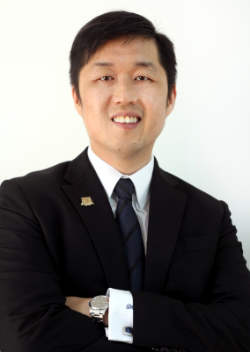 Desmond Ong
Desmond Ong
DMO Law Corporation






